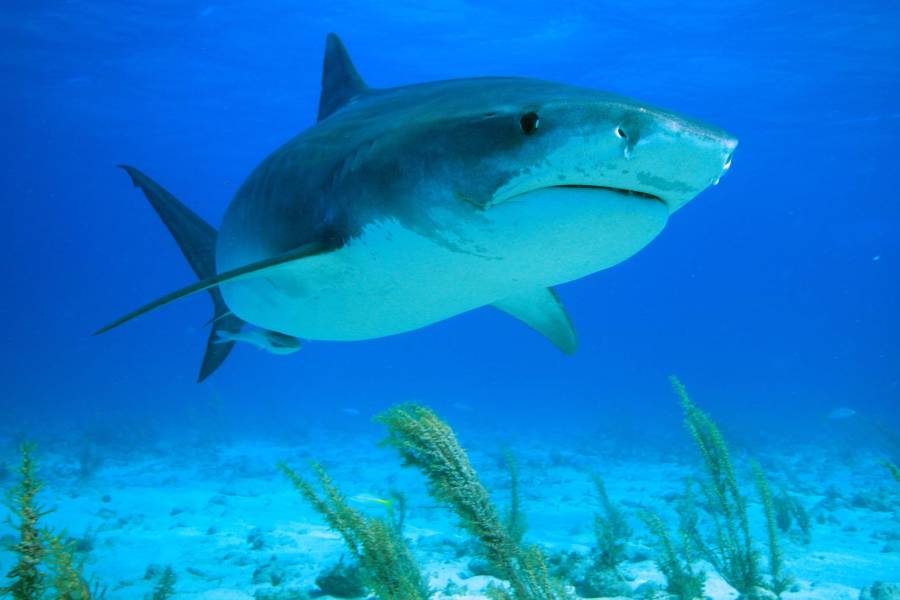
The Island - 1.8 Billion Years in the Making
Duration: 3 x 52'
Play Trailer Play Screener Contact SalesThis breathtaking series with Liz Bonnin, takes viewers on a dramatic journey through Ireland’s epic 1.8 billion-year history, revealing its origins as two separate pieces of land, formed south of the equator.
Liz Bonnin meets with a broad selection of passionate geologists who are experts in showing evidence of the immense collision of continents that fused the two sections of the island together before it travelled northwards to its current position. Together they explore the awesome power of the ice age and how it sculpted the unique landscape and they track the ancient footprints which provide the world’s most reliable evidence for the evolution of life from water to land.
Episode 1 Land
We reveal how two ancient continents swallowed an ocean as they slowly approached each other over millions of years. The collision point where they crashed eventually become Ireland, and we show how the battle scar from this immense fusion runs like a suture in the rock from the Shannon Estuary in County Limerick to Clogherhead in County Louth. As the rocks continued to move very slowly north, we explore how changing sea levels submerged Ireland in shallow tropical waters, creating the limestone deposits that dominate the landscape and are exposed so impressively at The Burren in County Clare.
We examine evidence for Ireland’s long-lost deserts that formed as the island crossed the equator past present day Egypt. In Newfoundland, the rocks reveal the legacy of the colossal forces that slowly ripped Ireland from North America over millions of years, and on the Antrim coast, we investigate the volcanic hotspots that created the iconic Giant’s Causeway around 60 million years ago.
Episode 2 Water
Episode two explores the island’s intricate and intimate relationship with water and ice. At Killary Fjord, we reflect on the immense bulldozing power of the glaciers which eroded and shaped the island through thousands-of-year cycles of formidable ice ages. In Norway, we look back through a window in time to see how ice continues to carve and mould the landscape. We climb Croagh Patrick for a spectacular view of the ice-sculpted Drumlins of Clew Bay, we explore the intriguing ‘raised beaches’ in Donegal which reveal clues of ancient shorelines where the ice retreated into the sea, and in Dublin Bay, we imagine how sea levels were once so low that it may have been possible to walk to Wales!
Ireland’s marine territory is 10 times larger than the land, and we head offshore to see how the latest seabed mapping technology offers fascinating insight into the processes that forged the island over millions of years. We explore shipwrecks that reveal Ireland's rich maritime lore, and just beyond the far edge of Ireland’s territorial waters, we investigate the black smokers that offer fascinating clues to the origins of life
Episode 3 Life
In this episode we meet the fossil experts and dinosaur hunters uncovering the secrets of Ireland's past, and in County Kerry, we reveal the world’s most reliable evidence of the first creature ever to emerge from the sea onto the land, still visible in the world-famous tetrapod tracks of Valentia Island. We explore how the island’s geology and natural resources have influenced and permeated Ireland's heritage, culture and social and industrial development – from the diverse sandstones and granites that define the buildings in Ireland's towns and cities, to the rich mining past and present and the complex challenge of balancing resources with a more sustainable future for the planet.
And with the climate changing at a faster pace today than ever before, we consider Ireland’s immediate future and look ahead to the next 1.8 billion years. We meet the researchers’ studying plants in climate-controlled chambers to better understand the potential impacts of the climate crisis on the atmosphere, and we explore the dynamic relationships and connections between climate change, coastal erosion and planetary forces in search of the understanding and insight that will be key to Ireland's survival into the next century.
For RTE and BBC Northern Ireland


Also in this genre

Cuttlefish - The Brainy Bunch

Foxes: Their Secret World

Germany From Above

Paul O'Grady’s Great Elephant Adventure

Monkey World - Orange Hooligans

Monkey World - Little Monsters

Brian May: The Badgers, the Farmers and Me
of
Format Info
The Island - 1.8 Billion Years in the Making
This breathtaking series with Liz Bonnin, takes viewers on a journey through Ireland’s 1.8 billion-year history, revealing its origins as two separate pieces of land, south of the equator.
Series Duration: 3 x 52'
Resolution: HD
Genres: Nat. History














